
 Despite its impressive achievements in a resource-poor setting, Cuba has never been seen as a poster child for health security. Yet the country’s medical internationalism and integrated healthcare system have proved remarkably successful in preventing and controlling infectious-disease threats, write Clare Wenham (LSE Health Policy) and Sonja Kittlesen (University of Oslo).
Despite its impressive achievements in a resource-poor setting, Cuba has never been seen as a poster child for health security. Yet the country’s medical internationalism and integrated healthcare system have proved remarkably successful in preventing and controlling infectious-disease threats, write Clare Wenham (LSE Health Policy) and Sonja Kittlesen (University of Oslo).
• Disponible también en español
When we think of epidemics, we tend not to think of Cuba. Yet, Cuba has an exemplary track record when it comes to health security – that is, the prevention and control of infectious-disease threats. It eradicated polio, malaria, tetanus, and measles, as well as bring the first country in the world to eliminate mother-to-child transmission of HIV.
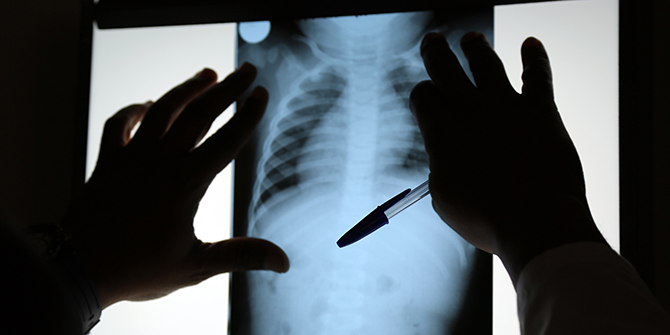
However, discussions on Cuban healthcare tend to focus less on health security and more on its strong state-run, integrated health system, which is rooted in a vision of health as a fundamental right and part of the socialist project. The free preventative and curative services provided by this system have been shown to produce world-leading health outcomes across a variety of indicators, even if the veracity of certain claims is sometimes disputed.
Despite its impressive achievements in a resource-poor setting, Cuba has never been seen as a poster child for health security, yet the Cuban experience does offer important lessons for improving health security globally.
Cuba’s medical internationalism
From an international perspective, a key trait of Cuba’s health-security activities is medical internationalism, which involves both sending medical teams abroad and bringing medical students and patients back to Cuba. Recent media coverage of the closure of the Mais Médicos programme in Brazil has focused on the political determinants of these overseas medical missions, where Cuban doctors are sent to provide healthcare in the name of international solidarity or in exchange for oil or hard currency.
Particularly significant from the standpoint of global health security, however, is the role that Cuban doctors have played in supporting responses to a number of epidemic outbreaks. The Cuban government was one of the first to respond to the 2014 Ebola outbreak in West Africa, and its medical teams constituted the largest international bilateral support to reach the region. This contrasts sharply with the criticism faced by the wider global community for its inadequate and delayed response to the crisis.
Yet, Cuba does not approach its medical internationalism as a matter of health security. Rather, Cuba’s medical missions are rooted in the principle of solidarity with the global population and considered an extension of Cuba’s national health policy. From the government’s perspective, medical internationalism is also a means of promoting the socialist project. This differs markedly from other international approaches to epidemic response, many of which are anchored in military and defence programmes and motivated by a desire to protect domestic populations from external threats of disease.
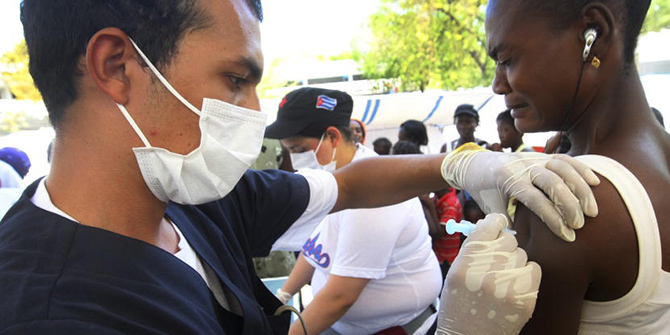
Cuba’s integrated health system
Alongside its international efforts, Cuba also has a remarkably strong health-security position domestically.
As already mentioned, Cuba has eradicated a number of infectious disease threats from its territory. Moreover, in an effort to ensure that these and other non-native infectious diseases are not re-introduced, Cuba maintains fierce point-of-entry controls: mandatory prophylaxis if returning from a malaria-endemic region and quarantine if returning from Ebola-infected locations.
Though it raises some questions around civil liberties, routine follow-up actually occurs for travellers returning from any potential disease “hot spot”. First, the neighbourhood doctor is notified of a recently returned passenger. The doctor is then obligated to follow up directly with that person both to allow for detection of any unusual symptoms and to ensure quick treatment where necessary as a means of avoiding onward transmission. In this way, the Cuban health system far outperforms any health system in the Global North.
Another key trait of Cuba’s domestic health-security efforts is their embedding within the universal healthcare system. Cuba’s example here shows that health security can be achieved in low-income settings through strengthened health systems and promotion of universal health coverage (UHC), which ensures that all individuals can access quality health services without having to endure financial hardship as a result.
Not only that, mechanisms and processes for providing UHC also provide the foundation for effective infectious disease control. The Cuban health system prioritises preventative care through vaccinations and health-education programmes, which in turn reduce the chances of an outbreak taking hold in the country. This is then reinforced by the facilitation of easy and free access to health professionals through neighbourhood health clinics: when infections do occur, they are detected and responded to sooner rather than later. Despite a lack of automated infrastructure and a paper-based surveillance system, this kind of early detection through UHC has enabled Cuba to respond to outbreaks of dengue and cholera with impressive speed and efficacy.
Learning from the Cuban experience
Whilst it is impossible to imagine a replication of the Cuban health system in other resource-poor settings owing to the uniqueness of the country’s political situation, a number of meaningful lessons can be ported nonetheless.
As is well-known, a focus on preventing infectious diseases should be paramount in any health-security efforts, and Cuba demonstrates how a strong, prevention-oriented, and community-based health system can contribute to reducing such threats. It also demonstrates the effectiveness of providing national doctors for international service in disease-control efforts; that is, allowing a well-trained medical corps to respond to outbreaks both at home and abroad.
Despite the successes of Cuba’s international and domestic health-security efforts to date, one glaring threat persists: the US embargo. The embargo has wide-ranging effects, which notably extend to the health sector. The lack of access to the latest medicines can have a severe impact on responses to novel outbreaks or diseases for which Cuban’s emerging biotechnology industry has yet to develop indigenous alternatives. Thus, Donald Trump’s reversal of the Obama administration’s attempts to normalise US-Cuban relations represents just one more detail of the Cuban experience that has far-reaching implications for health security.
Notes:
• The views expressed here are of the authors rather than the Centre or the LSE
• Please read our Comments Policy before commenting


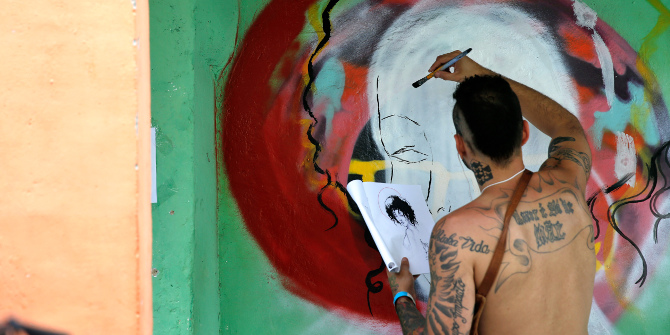

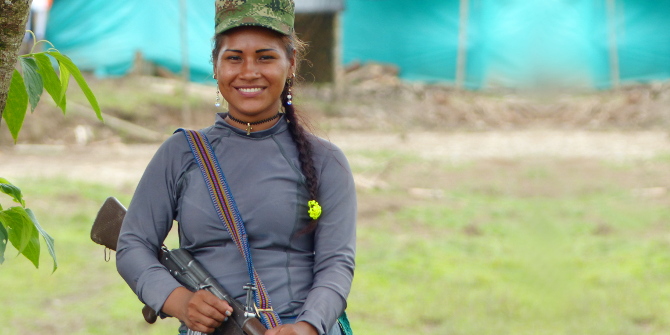
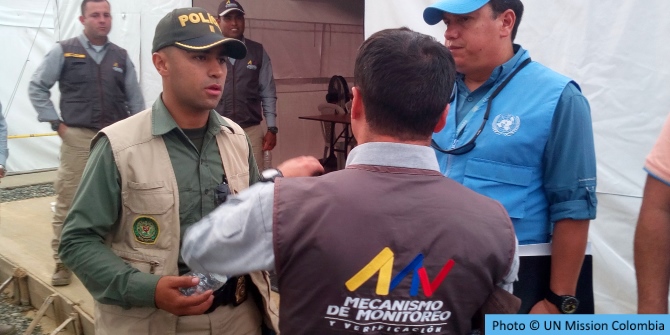
Thank you very much.. Indeed, with the increasing cost of health care, most of the countries are in need to learn from such experience especially from a country with limited resources in addition to the imposed sanctions. Hope for more in-depth similar articles. Hope as well for more research on the health system in North Korea (I have worked there for almost 8 years. Best wishes.